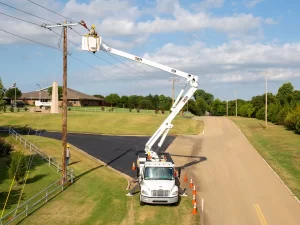Paving your driveway is a significant investment that enhances your home’s curb appeal and functionality. Timing is crucial when it comes to this project, as it can impact the quality and longevity of the finished product.
Factors to Consider
Before deciding on the best time to pave your driveway, there are several factors to take into account. Weather conditions play a significant role, as excessive heat, cold, or moisture can affect the paving process and the curing of the materials.
Your personal schedule and budget are also important considerations. Paving projects can be disruptive, so choose a time that minimizes inconvenience for you and your family. Additionally, paving companies may offer discounts during their off-season, which could help you save on costs.
Ideal Weather Conditions
The optimal weather for paving is warm and dry. Asphalt, in particular, requires temperatures above 50°F (10°C) for proper installation and curing. Concrete can be poured at slightly lower temperatures but still requires dry conditions.
Summer is generally the best season for paving projects, as the weather is more predictable and conducive to outdoor work. However, if you live in an area with extreme heat, it’s best to schedule your paving during the cooler morning hours or wait until early fall.
Avoiding Seasonal Rushes
Many homeowners tend to schedule their paving projects during the summer months, leading to a seasonal rush. This increased demand can result in longer wait times and potentially higher prices from contractors.
If your schedule allows, consider planning your paving project during the off-season, typically early spring or late fall. Not only will you have more flexibility in scheduling, but you may also benefit from lower prices due to reduced demand.
Preparing for the Project
Once you’ve decided on the best time for your paving project, there are several steps you can take to prepare. First, research and select a reputable paving contractor. Look for companies with experience, positive reviews, and proper licensing and insurance.
Next, clear your driveway of any vehicles, obstacles, or debris. If you have any landscaping near the driveway, trim back branches or foliage that may interfere with the paving process. The experienced team at ottawa paving can guide you through the necessary preparations to ensure a smooth and efficient paving experience.
Maintenance and Care
After your driveway is paved, proper maintenance is essential to extend its lifespan and keep it looking its best. Regular sealing can help protect the surface from weathering, stains, and cracks. Be sure to follow your contractor’s recommendations for sealing frequency and any specific care instructions.
Additionally, avoid parking heavy vehicles or equipment on your newly paved driveway for at least 24-48 hours to allow proper curing. During the winter months, use caution when plowing or shoveling snow to prevent damage to the surface.
Wrapping Up
In conclusion, the best time to pave your driveway depends on a combination of factors, including weather conditions, personal schedule, and budget. By understanding these considerations and working with a trusted paving contractor, you can ensure a successful and long-lasting paving project that enhances the beauty and value of your home.




